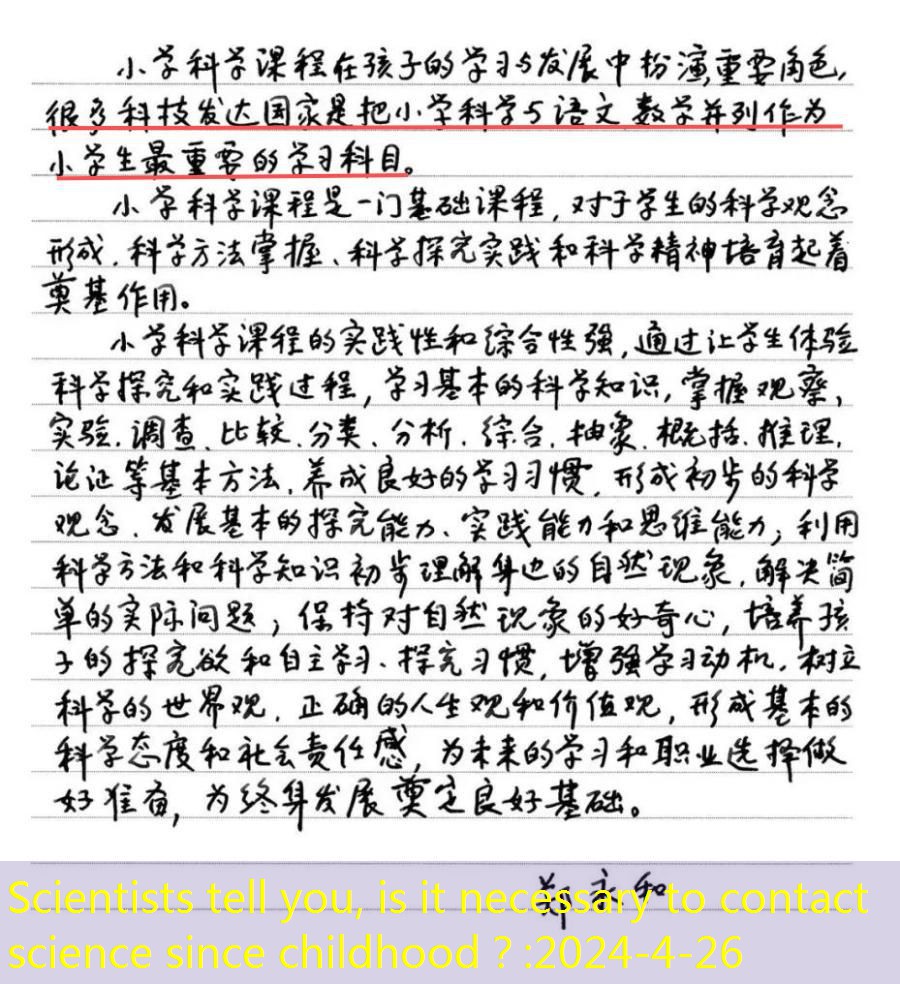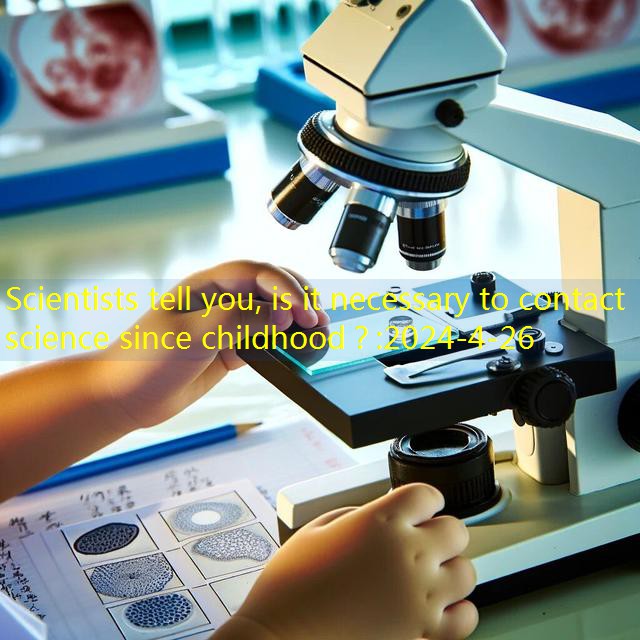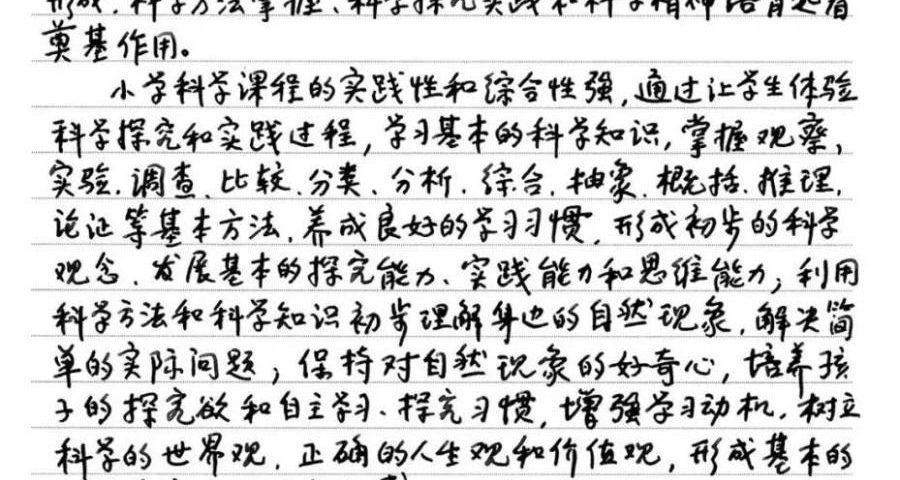The “Learning Power” learning platform and the “scientist reply” campaign jointly launched by the China Science News Agency have received a warm response from the majority of scientific enthusiasts.Among them, a question about “Is Elementary Science Course is important” has aroused widespread discussion in all sectors of society.In response to this question, Professor Zheng Yonghe, Dean of the Institute of Science Education of Beijing Normal University, gave his reply.
 Primary school science curriculum plays an important role in children’s learning and development. Many developed countries with developed science and technology are the most important learning subjects for primary school students.
Primary school science curriculum plays an important role in children’s learning and development. Many developed countries with developed science and technology are the most important learning subjects for primary school students.
Primary school science curriculum is a basic course that plays a foundation for students’ scientific concept formation, scientific methods, scientific inquiry practice and scientific spirit cultivation.
The practicality and comprehensiveness of the scientific curriculum of elementary schools. By allowing students to experience the scientific inquiry and practical process, learn basic scientific knowledge, and master observation. Experiments, survey, comparison, classification, analysis, comprehensive, generalization, generalization, reasoning, argumentation, etc.Basic methods, develop good learning habits, form preliminary scientific concepts, develop basic inquiry, practical ability, and thinking ability; use scientific methods and scientific knowledge to initially understand the natural phenomenon around you, solve simple practical problems; keep it naturallyThe curiosity of the phenomenon, cultivate children’s desire to explore, learn from independent learning, explore habits, enhance learning motivation, establish a scientific world outlook, correct outlook on life and values, form a basic scientific attitude and social responsibility, and do it for future learning and career choices.Good preparation and laid a good foundation for life development.
With the successive release of the “Basic Catalog of Edition of Edition of Primary and secondary schools in primary and secondary schools”, “Opinions on further strengthening the popularization of science and technology in the new era”, and “Opinions on Strengthening Scientific Education in Primary and Middle Schools in the New Era”, the more the low age of science courses is gettingThe more prominent.
Experiments have fully proved that the effect and significance of young children receiving scientific education are significant.
First of all, psychologists have in -depth research that children often form a clear, positive or negative attitude towards education before the age of 14, and this attitude is often deeply rooted in their growth.Therefore, if they can inspire their natural tendencies in the early stages of children, cultivate and guide through scientific education methods, and will lay a positive tone for their future learning career.
Secondly, the research on the development of human brain further revealed that early scientific education can provide children with a solid foundation for learning.Regardless of the content of learning or the method of learning, education during this period will have a profound impact on them.By encouraging and guiding children to be born with curiosity, and letting them contact and familiarize with basic scientific vocabulary, we can guide them to start understanding the surrounding world and cultivate their ability to think about the laws of things.

The education focus of contemporary scientific enlightenment is that the process is more important than the result.
Although the children get some basic scientific understanding when they are scientifically exposed to science, they are indeed valuable, but the core goal of education should not be limited to finding the answer of “correct”.What’s more important is that we need to stimulate their curiosity and focus on cultivating their research skills.
In the process of education, the attempts that children discovered independently should be open and tolerant.Parents can’t help but want to correct their children’s views because they know the answer in advance. However, in the context of scientific education, we should make children the real leader.Only by guiding them to discover errors and correctly correct themselves, we can more effectively cultivate children’s comprehensive ability and scientific thinking.

